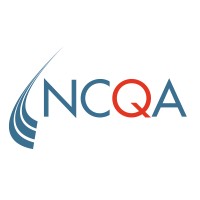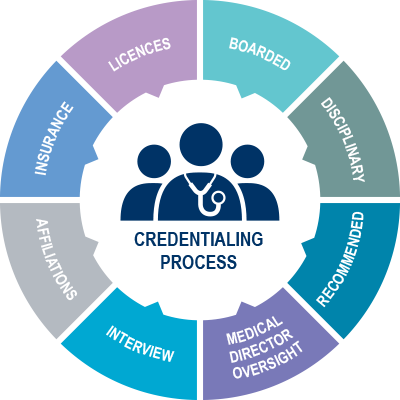CERTIFIED MEDICAL CREDENTIALING SERVICES
Our top-tier provider enrollment and certified medical credentialing services help providers deliver quality care without delays while we take note of securing and maintaining provider credentials, ensuring that the insurance credentialing guidelines are complied. Our insurance credentialing experts steer through the complex landscape of insurance networks and regulatory requirements to maintain your credentials to keep your practice compliant with the necessary requirements. Enhance your practice’s efficiency with MedStates certified medical credentialing services and provider enrollment services!!!
CERTIFIED MEDICAL CREDENTIALING SERVICES
In the healthcare industry, medical insurance credentialing is one of the most important requirement to ensure the quality of care and the financial success of a healthcare practice. Whether you are a physician, part of a medical billing team, or work in administration of a healthcare practice, understanding insurance credentialing is a key to making sure that your practice stays compliant, remains profitable, and capable of billing insurance companies accurately.
What does it mean to be credentialed in healthcare, and why is credentialing and billing services so important in health industry. Let us explain what certified medical credentialing services are, why it is crucial for healthcare providers, and how it directly relates to MedStates comprehensive, affordable and expert medical billing services.
INSURANCE CREDENTIALING IN HEALTHCARE
Insurance credentialing in healthcare refers to the process of verifying a medical care provider’s qualifications, experience, and license to practice medicine to ensure that they are competent and legally authorized to provide medical care. When we talk about professional insurance credentialing, we refer to review of a provider’s:
- Relevant Professional Qualification
- Approved Certifications
- License to Practice Medicine
- Training and Residency
- Previous Practice History
- Insurance Malpractice Record
The enrollment and credentialing process with insurance ensures that providers meet the eligibility criteria for patient care, participate in insurance networks, and eligible to be reimbursed for medical services. So, when it is asked, “What does credentialing mean in healthcare?”. The answer is to ensure the safety, competence, and qualifications of a healthcare providers.


WHAT IS PROVIDER CREDENTIALING?
Since healthcare providers are at the forefront of patient care, the credentialing process for healthcare practitioners involves verifying a physician’s qualifications, training, malpractice history, and other essential details. These details determine their eligibility to practice medicine and bill insurance network for their services to insurance holders.
Physician credentials include not only educational history but also professional licenses and certifications that allow them to practice in certain specialties.
Provider credentialing is a requirement to get accepted into insurance networks. Without certified medical credentialing, providers cannot submit claims to insurance network, thus, leads to delay or rejection of claims.
Insurance credentialing is carried out usually by healthcare provider’s office or by a professional credentialing company hired by physicians that specializes in handling all the necessary documentation, submissions, and follow-ups with insurance companies.
FOR PROVIDER CREDENTIALING SERVICES
AUTHORITIES FOR CREDENTIALING AND RE-CREDENTIALING
The insurance credentialing process for healthcare providers typically involves several key authorities and organizations that set standards and ensure compliance. These include:
- National Provider Identifier (NPI) Registry – Managed by the Centers for Medicare & Medicaid Services (CMS), the NPI Registry is an essential database for identifying healthcare providers. Every provider must obtain an NPI, which is used in billing and credentialing.
- The American Board of Medical Specialties (ABMS) – The ABMS certifies physicians in the United States in 24 different medical specialties and sub-specialties. Board certification is a critical part of the credentialing process for physicians. Insurance companies often require board certification from ABMS-accredited boards as part of their credentialing criteria.
- The Joint Commission (TJC) – The Joint Commission is a nationally recognized organization that accredits healthcare organizations and programs. It also plays a role in medical staff credentialing by ensuring healthcare facilities meet strict standards for patient care and safety.
- National Committee for Quality Assurance (NCQA) – The NCQA is responsible for accrediting healthcare organizations and also works closely with insurance companies to ensure providers meet high standards. It has specific standards for credentialing and recredentialing providers within health plans.
- State Medical Boards – Each state has its own medical board responsible for licensing and credentialing physicians within the state. These boards are responsible for verifying licensure and monitoring the credentialing process to ensure that doctors meet state-specific requirements to practice medicine.
- Council for Affordable Quality Healthcare (CAQH) – CAQH offers a centralized platform for healthcare providers to submit their credentialing information to multiple insurance companies and healthcare organizations. Many insurance companies require that providers complete credentialing through CAQH as part of the credentialing process for providers.
- Centers for Medicare & Medicaid Services (CMS) – For providers who wish to participate in the Medicare and Medicaid programs, CMS manages the Medicare Provider Enrollment, Chain, and Ownership System (PECOS), which is used to verify and enroll providers. CMS also plays a role in recredentialing providers for continued participation in these programs.
- Accreditation Association for Ambulatory Health Care (AAAHC) – For ambulatory care centers and outpatient clinics, the AAAHC is a leading authority for accreditation. They provide guidelines and credentialing requirements that healthcare organizations must meet to maintain quality standards.





HOW INSURANCE RELATES TO MEDICAL CREDENTIALING SERVICES?
In the context of medical billing, certified medical credentialing service ensures that the provider is eligible to submit claims to insurance network against approved insurance plan, for reimbursement. Insurance credentialing in medical billing directly impacts whether a provider will be reimbursed for services or his claims will be rejected. In some cases, when the credentials are not up-to-date, the payer companies may delay reimbursement of claims till submission of updated medical credentials.
MedStates certified medical credentialing services verify that the provider has met all the requirements to bill for services in compliance with insurance guidelines and state specific regulations. Without proper credentialing, the credentialing process for billing services can lead to denied claims, payment delays, and increased administrative costs. Moreover, when billing for a non-credentialed healthcare provider, MedStates medical billing experts has to go through intense payer requirements for clarification before recredentialing is done. This results in loss of time, efforts and positive energy. Yet, such claims often go to bad debts, claim denials as well as claim rejection.
Therefore, to ensure smooth medical billing services, MedStates ensure provider credentialing before submission of claims. This is why insurance credentialing and medical billing services often go side by side. When providers are properly credentialed, claims can be processed quickly, reducing the risk of financial disruption for healthcare practice as well as MedStates (since MedStates charge a percentage of paid claims as billing service fee), creating a win-win situation for medical service provider as well as the billing company.
CREDENTIALING FOR PROVIDERS
The insurance credentialing process for providers is the same regardless of whether the provider is a physician, nurse, or a professional healthcare specialist. Lets take a look at the steps involved in medical credentialing process for physicians and other healthcare providers:
- Application Submission: Medical Provider submits credentialing application, which includes personal information, qualification, certifications, and license details.
- Verification: All submitted credentials are verified, including checking medical school records, residency details, board certifications, and malpractice history through concerned verification authority.
- Review: Once all the information is verified, it is reviewed by a credentialing committee at the healthcare facility or insurance company.
- Approval and Contracting: If everything is in order, the provider is approved and a contract is extended, allowing the provider to treat patients and bill for care services.
- Ongoing Monitoring: Credentialing is not a one-time process; health care providers are continually monitored to ensure updated credentials so they continue to meet necessary industry requirements.

INSURANCE CREDENTIALING SERVICES - MEDICAL BILLING INDUSTRY EXPERTS
WHAT DOES CREDENTIALING MEAN FOR MEDICAL PROVIDERS
For healthcare practitioners, medical credentialing is the process to ensure that their credentials are up-to-date and verified for enrollment with insurance network. Providers must undergo the health insurance credentialing to become eligible to provide patient care under various insurance plans. This allows the healthcare providers to submit claims for their services and receive payment in return.
For healthcare practitioners, joining hands with MedStates certified credentialing company for physicians can streamline the process. MedStates make sure that all insurance credentialing requirements are complied, applications are submitted correctly, and follow-ups with insurance companies are handled in a timely manner.
If you are looking for certified medical credentialing services, approved doctor credentialing services, or just need assistance with managing hospital credentials, it is important to find a trusted service like MedStates that understands the ins and outs of provider’s medical credentialing services and medical billing and coding service.
MEDSTATES OFFER CERTIFIED MEDICAL CREDENTIALING SERVICES
At MedStates, we specialize in providing certified medical credentialing services for physicians and other healthcare providers. Our team helps you steer through the medical insurance credentialing process, ensuring that all your qualifications are verified, updated, and submitted to the relevant organizations and insurance companies.
As a leading medical credentialing company for physicians, we manage the provider credentialing process to ensure that your practice remains eligible for timely and accurate reimbursements for the healthcare services rendered. Whether you are looking for medical credentialing services, or need assistance with medical billing services, MedStates one-stop RCM solutions help with everything from provider enrollment to patient eligibility verification, medical coding and billing solutions, claim submission, denial management and accounts receivable follow-up services.
Moreover, MedStates assist in financial and business consultancy services which includes practice management, business expansion, bookkeeping services, financial reporting, dashboard creation and financial management.
